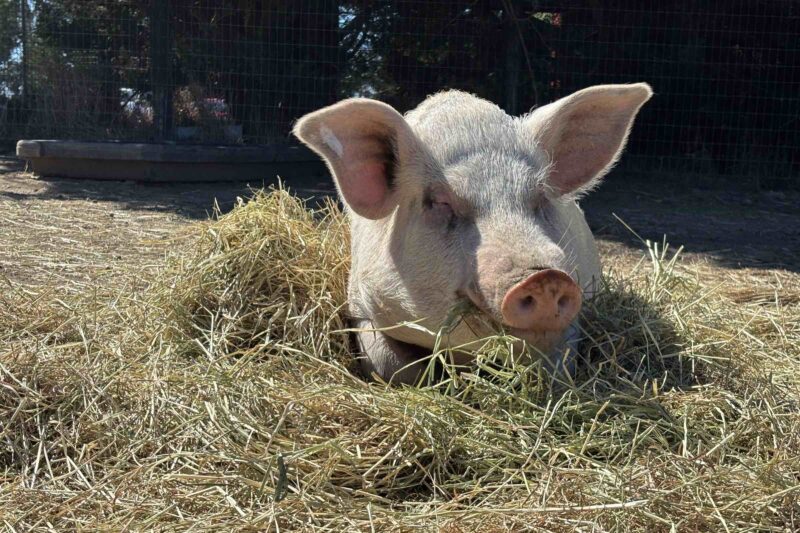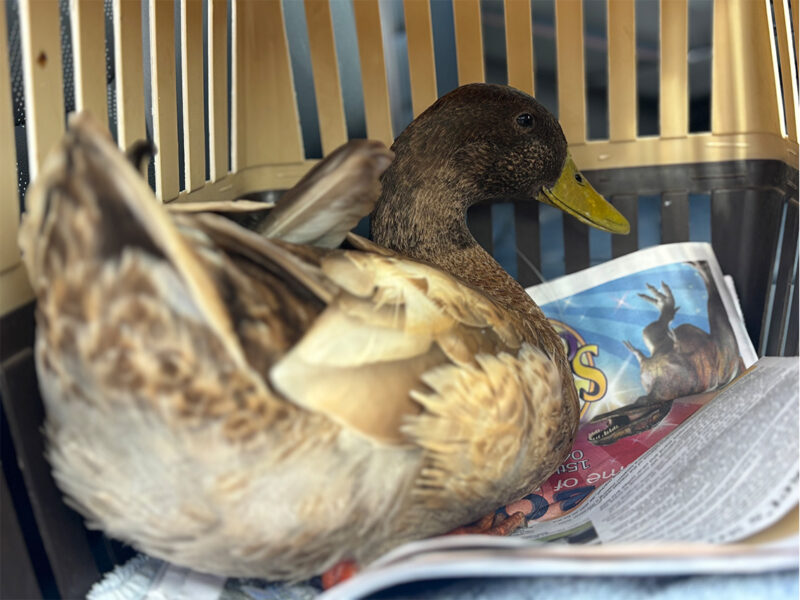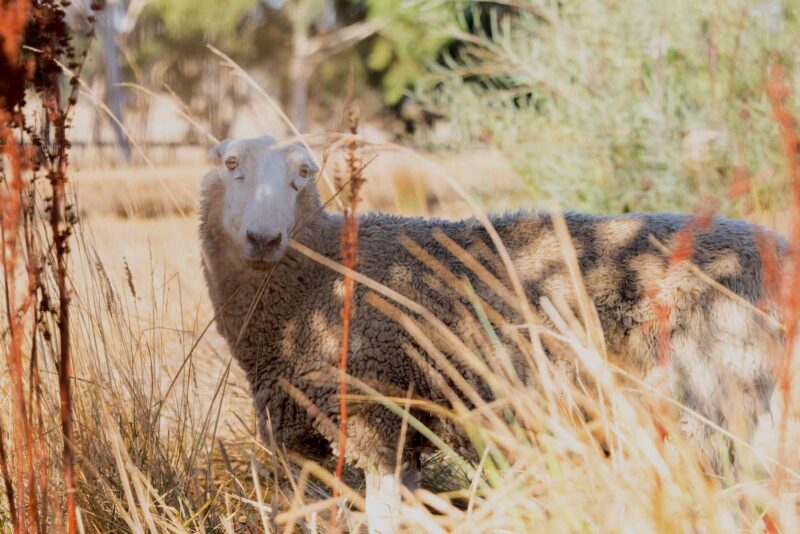
Never Mind How History Will Judge Us…
Allowing history to be our judge not only abdicates us from “owning” what we do but exonerates us from accepting our culpability for any harm or injustices we cause or are complicit in.
But not the karma. For that will always be ours and something we cannot escape.
And if the meek are to truly inherit the earth, it is about time we do something about this; for the way we are currently living, there will be none left.
And there can be few more meek amongst us than the non-human animals of this world.
Given what we know about them today, informed by science, common sense and compassion, shouldn’t we be judged by the high court of our morality, and not those of future generations? For, looking back through the pages of history and finding its many atrocities, it could be argued, “They knew no better.”
Yet today, we most certainly do. And with this knowledge comes an urgent imperative to place one hand on our hearts and say that we MUST do better.
Sheep have been shown to recognise the faces of their buddies and understand the emotions of humans based upon their facial expressions. They, too, have been seen to cleverly problem-solve in novel situations.
Cows have eureka moments, just like we humans, while the strong bonds between mother cows and their babies are often witnessed, along with the lengths they will go to, to keep them safe. They are masters of Zen, of whom we could learn much from. Despite their formidable size, they rarely use this against us despite the many reasons of provocation our kind sends their way.
Now, pigs might not fly, but they can do a lot of things that many people may be uncomfortable to learn about. These highly intelligent, fun-loving and problem-solving animals are myth busters upon meeting them on their terms. For one, they do not sweat like we humans do, and, given the chance, are clean beyond measure. They are naturally curious and friendly, and love a belly rub, just like your dog.
Get to know a chicken and you will quickly learn that being called a “bird brain” could just be the greatest compliment you could ever be paid. Highly intelligent, keen problem solvers, able to self-medicate, loyal friends, displaying empathy; the list is as endless as it is heart-breaking when one considers their current legal treatment, let alone the ill-legal.

Fish, we learn – if we have the courage to do so – have distinct personalities, and these can affect their likelihood of being impacted by certain parasites. They are sentient beings who feel fear and avoid pain and seek out pleasurable experiences. Yet they are killed in the most brutal and prolonged ways in the greatest number of any animals used for food.
Ants, many would be surprised to learn, show a trait that was once thought to be uniquely human: the ability to tend the wounds of their injured cohorts. Often carrying the maimed back to their nests and licking clean wounds, ants show their altruistic side. And such a tendency to help one’s conspecifics has now been reported in several mammalian species.
From fruit flies, snails and spiders through to bats, countless species of animals are telling us who they are, if only we can step back from our self-indulged world and observe. That personality too is discernible in the most unlikely of non-human animals is surely a prompt to us all, that now is the time to recalibrate our perceptions of them, accept our similar neurobiology and work on our empathy muscle.
Yet what we, as a society, consistently fail to do is translate this knowledge into our actions and beliefs. We care about animals and offer them protections, and recognise their sentience, but only so far as this does not impinge upon our use of them. This is why dogs and cats are friends; cows and pigs are food; and mice and spiders are pests.
We “tut, tut” at other nations over their treatment of some animals, yet we legalise brutalities to no less sentient ones on our shores in the guise of animal agriculture and animal experimentation. So are we any better? Or have we just become better at kidding ourselves we are?
How then best can we then become more just and fair?
Perhaps the answer lies in becoming better observers in this world. Doing so not just with our eyes and ears, but with our hearts. The evolution of our species tells us that we are indeed programmed for kindness and non-violence so let’s keep moving the ball forward.
An archaeological dig revealed a healed broken femur bone, indicating that another human had aided the injured and tended to them when they, themselves could not. A skull dating back some 1.5 million years with no teeth suggested that others of their kind sought out soft food to help keep them alive.
Palaeontological studies reveal that more than 3 million years ago, compassion trumped language, and the ability to care for one another, along with the emotions that sprang from this, helped guide our intelligence and reasoning to where it is today.
A symbolic moment of peace came on Christmas Day in World War 1 when soldiers laid down their weapons and differences in no man’s land. Singing songs, exchanging prisoners and even playing football, they reminded us that under the skin or uniform, we are the same in our desire for peace and we are inherently good.
And today, in the weather of our kindness and benevolence, formerly farmed animals are flourishing, whether in sanctuary settings or kept as much-loved pets. Our actions towards them see them displaying an exemplary ability to learn to trust in a species they once had no reason to. The vast array of personalities that emerge makes it hard to provide a blanket description of their kind and speaks to the irrevocable fact that they are all unique individuals, and not the mindless automatons some would have us believe.

Their strong bonds with one another and their human friends make evident their social nature, akin to our own.
And although the impact of the trauma, both physical and psychological, they have endured at the hands of humans and our discriminatory animal protection laws is often evident, so too is their ability to find their way back to the world and embrace a life truly worth living.
In 2012, somewhat belatedly, in the hallowed halls of Cambridge University, the “Cambridge Declaration on Consciousness” came into being. Aimed not at scientists, for they have long recognised animal consciousness, but for the rest of the world, the declaration put people on notice that “non-human animals have the neuroanatomical, neurochemical, and neurophysiological substrates of conscious states along with the capacity to exhibit intentional behaviours. Consequently, the weight of evidence indicates that humans are not unique in possessing the neurological substrates that generate consciousness. Non-human animals, including all mammals and birds, and many other creatures, including octopuses, also possess these neurological substrates.”

If we were to not just acknowledge the consciousness and sentience of animals but to live this acknowledgment in our everyday thoughts, actions and deeds, much of our current treatment of non-human animals would become a dark chapter in history.
And what a ground-breaking one that would be. One where future generations, whilst looking back upon us and asking, “What took them so long?”, will also celebrate our compassion and courage to change.
As they say: “When is the best time to plant a tree?” Answer: “Twenty years ago; the next best time is today!”
And whilst we are shining a light on society’s treatment of animals and the legal atrocities afforded them, we too need to shine one on the suffering and trauma we are complicit in thrusting upon human animals. For the toll on them is as great as it is unseen.
Killing any animal, whether through compassion or otherwise, is never pleasant. Yet killing healthy and most often young animals who do not want to die is traumatic indeed for both parties. It goes against the best of our humanity.
Perpetration-induced traumatic stress (PITS) is a form of post-traumatic stress disorder (PTSD). It comes about not from being a victim or rescuer in trauma, but by being an active participant in causing trauma, violence and death of and to another living being. It has been seen in soldiers returning from war, executioners and police officers, whose work calls on them to commit acts of violence seen as socially acceptable at the time or even expected of them.
It is now being experienced by those who work in slaughterhouses.
All humans have hearts. It is high time we, as a society, look at what we are doing to them. Whilst many will readily acknowledge that they could not harm another living being, we so blindly look away from what we are paying others to do to animals, and thereby the trauma inflicted upon them.
Over and over, we see compassion emerging from the darkness of these slaughterhouses: traumatised workers reaching out to spare the life of a newborn babe expelled from their mother’s womb at the moment of their terrified death, or tiny babes born on trucks or found wandering in killing pens. The bewildered and often excrement-covered babies arrive into care, drenched in the smell of death but blanketed in the human kindness that spared them.
Nothing has been able to extinguish that kindness.
This is our beacon of hope.
Oscar Wilde wrote, “The duty we owe to history is to rewrite it.”
And so, as we approach World Animal Day 2023, October 4th, what better time than now to make peace with the animal kingdom. For whether or not the law chooses to recognise the cruelty inflicted daily upon non-human animals, we most certainly should. Never mind how history will judge us, our consciences surely will – and that we have to live with today.










